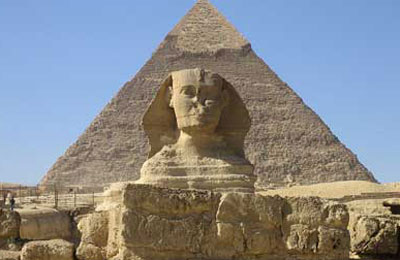
Egypt studies IMF bridging loan as crisis deepens
Cairo, March 12, 2013
Egypt is studying an IMF offer of a bridging loan, a finance ministry source said, as Cairo tries to weather a currency and budget crisis deepened by political uncertainty and violence on the streets of its cities.
In Washington, the International Monetary Fund said Egypt needed bold and ambitious action to tackle its economic problems urgently and it could get temporary IMF funding while it negotiated a long-delayed full loan programme.
Egypt's Islamist government faces daunting problems two years after the fall of Hosni Mubarak. Violent protests and feuding with the opposition have ravaged economic confidence, sending its currency down sharply - even though the central bank has spent almost two thirds of the dollar reserves left by Mubarak in trying to prop the Egyptian pound up.
President Mohamed Mursi has seemed reluctant to accept reform and austerity measures that would come with a full IMF deal before parliamentary elections. However, the budget deficit is also soaring and his options for foreign help are narrowing, especially as Cairo's wealthy benefactor, Qatar, signalled on Monday it was not yet ready to offer any more money.
In Cairo, the finance ministry source said short-term funding under the IMF's "Rapid Financing Instrument" programme was on the table. "We are studying the possibility of a temporary loan but no decision has been made yet," he told Reuters, requesting anonymity.
On Sunday, Planning Minister Ashraf al-Araby said Egypt did not need stop-gap funding. "The cure for the budget deficit needs broad structural measures and the help we are requesting from the IMF is not quick fixes," he said.
Al-Araby did not say explicitly whether the IMF had offered such funding, which would come with fewer of the unpalatable conditions that would accompany a full deal. Egypt agreed a $4.8 billion loan in principle with the IMF last November but requested a delay during violent unrest the following month.
Analysts have speculated Mursi could turn to Qatar, which has already helped out with soft loans and deposits at the Egyptian central bank since the 2011 uprising.
However, Qatari Finance Minister Youssef Kamal dashed any hopes that more funds were on their way soon. "We already announced $5 billion," he told Reuters. Asked whether Doha expected to provide more, he replied: "Not yet."
Qatar reveals few details of its financial transactions and it is unclear if the $5 billion in help for Cairo it has announced has been fully disbursed.
Egypt also faces political chaos. Last month Mursi called parliamentary elections to start in April, only for a court to cancel his decree. Now no one knows when voting will begin.
"THIS CRITICAL TIME"
In Washington, IMF spokeswoman Wafa Amr said the Rapid Financing Instrument was designed to provide rapid, but limited, assistance to member countries facing urgent balance of payments needs. "Use of the RFI could be an option if there is a need for interim financing while a strong medium-term policy programme is being put in place," Amr told Reuters.
"Ultimately, this is a decision the authorities will have to take," she said, adding: "The IMF remains fully committed to supporting Egypt at this critical time."
The stop-gap measure could amount to about $750 million.
However, the sum is dwarfed by the budget deficit, which is growing rapidly as a slide in the Egyptian pound pushes up the cost of subsidising energy and food, much of which has to be imported using scarce dollars.
In its reform programme, the government targeted a deficit for this financial year of 189.7 billion Egyptian pounds ($28 billion) or 10.9 percent of annual economic output. Even this assumes economic reforms are made, and the deficit would hit 12.3 percent of GDP without such action, it forecast.
Qatar's money so far has failed to reverse a slide in its foreign currency reserves to $13.5 billion at the end of February - enough to cover little more than two months' imports.
In a sign of economic stress, Petroleum Minister Osama Kamal dismissed the head of state-owned Misr Petroleum and a top official in the petroleum authority on Sunday, blaming them for a crisis in distributing diesel used by buses and trucks.
The state news agency MENA reported that Kamal had ordered the supply of an extra million litres of diesel to military-run filling stations, aiming to ease shortages which have been dragging on for months.
International traders say Egypt has cut back on planned oil imports, cancelling one crude purchase tender and reducing the size of another for gasoil. "They need oil but they have no money," said one trader last week.
Tensions are rising on the streets of Egyptian cities, with protests and violence frequently erupting over a variety of grievances. Behind the immediate causes lies a general malaise as Egyptians struggle with falling living standards.
EGYPTIANS DEMAND HONESTY
Egyptians want Mursi's government to be more honest with its people. "This is a failed government that is unable to face up to its problems and challenges, and that is why it finds it so difficult to confess them to the people," said Ahmed Mohamed, a 70-year-old retired private company employee.
"Soon it will have to admit the problems when it can no longer buy the fuel. Given the recent economic signs, this stage will come soon," he told Reuters on a street in downtown Cairo.
Inflation jumped to 8.2 percent in the year to February from 6.3 percent the previous month, with an even greater rise in food and drink prices particularly hurting the poor.
The central bank succeeded in bringing the fall in currency reserves almost to halt last month, but only by rationing the supply of dollars to commercial banks.
This is crippling small and medium-sized private businesses, which are forced to buy dollars on the black market at exchange rates that often wipe out their profits. Long-term economic damage is likely unless currency supplies improve rapidly. - Reuters







